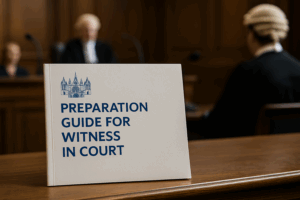Is cohabitation agreement essential for unmarried couples?

There has long been a myth that if you live with someone for long enough, your relationship will be seen as a ‘common law marriage’. Nothing could be further from the truth, and sadly this is often only discovered when couples who have lived together for a number of years decide to go their separate ways.

As if the ending of a relationship is not enough to deal with, arguing about who owns what and who is entitled to what can make the whole separation process ten-times more distressing.
Unless you are married or have entered into a civil partnership, you will not have the same financial claim on assets; it is that simple. Beyond this, you then enter into what is an incredibly grey area that can take a great deal of time, and unnecessary expense, as there are numerous elements of your life and home that you have shared that need to be considered. If you have lived together as a couple, but you have no documentation or written agreement identifying assets to which you have a claim, it can be tough to come out of that relationship with anything other than your personal possessions.
What happens to the house if you separate and there is no cohabitation agreement?
As an example, if you moved into a property that was and is still owned by your partner, but your name is not on the deeds, any mortgage agreement, or any other agreement indicating that you will make financial contributions to the maintenance and upkeep of the property, it would be complicated to claim you have owned a share of its value when the relationship ends. You may be able to make a claim using the Trusts of Land and Appointment of Trustees Act 1996 (TOLATA), whereby a court will decide what, if any, your financial interest in the shared home is.
However, to succeed, you will need to prove that there was either an agreement or there has been some form of common interest that would entitle you to your share of the property’s value, or even just a share of it has increased in value since you moved in.
Sharing of finances
Depending on your relationship and roles within the relationship, you may each have individual bank accounts, or you may have a joint bank account. In the event you have a joint bank account, then the contents should be divided equally. However, by the very nature of a joint bank account, there is nothing to stop one or other party from withdrawing the entire contents. That money in your personal bank or savings account is yours and nobody else’s. That is not the case if you are married.
Personal assets
If you are single, your personal assets, whether they be physical objects such as paintings, or finances such as your pension fund, ISA or other savings, are your own and will not be divided up upon separation. Once again, if you are married, that is not the case.
How about your pensions?
If you cohabit, then neither of you have any claim or rights over your (ex) partner’s pension unless the circumstances are exceptional. However, even without a cohabitation agreement, you can name your cohabitant as the beneficiary of a ‘death in service’ benefit.
Children
Children can often be the innocent victims of a couple’s separation, much of which is a result of neither of the two parents having a comprehensive knowledge of the law when it comes to parental rights for non-married couples. When parents are not married, the mother has parental responsibility until the father’s name appears on the birth certificate when the birth is registered, the father enters into a parental responsibility agreement with the mother, or the mother and father subsequently marry.
Financial responsibility for children
While a mother may have full parental responsibility for any children if none of those mentioned above criteria is met, that does not mean she has sole financial responsibility. The mother of a child may seek financial support from the father in terms of ensuring she and the child have a roof over their heads during the child’s age of minority (until the age of 18) through the transfer of property if the father owns the home they lived in.
The mother can seek financial support from the father of her child once the couple has separated. Under Schedule 1 of the Children Act 1989, one party can make financial claims against the other, such that if the father takes responsibility for the child or children from the relationship, he can make a claim to the child or children’s mother for financial support.
How does a cohabitation agreement change things?
A cohabitation agreement, providing it is an official written, and signed deed and not just a verbal agreement, it should clearly identify how a couple’s assets, including the home they share, will be divided up in the event the couple separate. A cohabitation agreement is a legally binding contract, so it is always best to seek legal advice when it comes to preparing one.
It would be best if you considered drawing up a cohabitation agreement the moment you decide to live together – cohabit. The agreement can also be amended based on changes in circumstances, such as the birth of a child. It can be all too easy for couples to agree they ought to have a cohabitation agreement, but it is often postponed because it seems very unromantic and almost a declaration from the very beginning that the relationship is likely to fail.
Key Takeaway
Relationships do not fall apart because a cohabitation agreement has been signed; while when relationships have sadly failed, the fact that a cohabitation agreement had been drawn up meant that the separation was not a messy and long-drawn-out event.
If you are currently cohabiting with someone or are thinking of cohabiting, then you should give earnest consideration to drawing up a cohabitation agreement. To find out more, why not contact a family law solicitor on Qredible.co.uk and they will be more than happy to guide you through the process.
Do you need a solicitor?
Find a solicitor on Qredible in just a few easy steps
Bolton Solicitor
London Solicitor
Manchester Solicitor
London Solicitor
Caernarfon Solicitor
Cheshire Solicitor
















